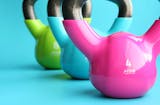The right diet, exercise, and supplements can make a world of difference to your fitness regime.
No matter if you’re looking to get gains from your workouts or you want to shed some of those lockdown pounds, here are eight essential supplements that will help you achieve your health and fitness goals.
Contents
1. Protein Powder (Plant-Based or Whey)
Protein is one of the most popular supplements for people who work out because it provides essential amino acids.
Protein powders are a great way to make sure you’re getting enough protein to support your body when you work out. Protein from peas, whey, or casein in powdered form is great as a meal replacement.
Take 20 to 40 grams after your workout or throughout the day – get more info.
2. Probiotics
Probiotics are the billions of living bacteria and microorganisms that live in the human body, and they make up the microbiome. While both good and bad bacteria live in the microbiome, it is unique to every individual and it’s always changing.
We may disrupt our microbiome by using medications like antibiotics, having an autoimmune disease, or due to environmental changes – which can harm our overall health. Supplementing your diet with probiotics is important for maintaining an optimal microbiome.
How much to take depends on the product, but probiotics are usually taken daily.
3. Electrolytes
Electrolytes are minerals in your body that carry an electric charge. Their function is to maintain homeostasis by regulating fluid balance and muscle contractions – which is why they are some of the best supplements for people who work out.
If you have a healthy diet, your kidneys can usually handle fluid balance by themselves. However, because everyone’s sweat concentration is different, you could be losing valuable electrolytes if you tend to sweat excessively.
The main electrolyte that is lost through sweat is sodium, followed by chloride and smaller amounts of potassium and magnesium.
If you are a heavy sweater, consider supplementing with electrolytes.
4. Vitamin D
In the human body, vitamin D plays several vital functions. Although more studies may be needed, current research suggests that supplementing with vitamin D may regulate the levels of testosterone in men who have lower amounts.
Vitamin D has also been found to support bone and heart health – something that’s particularly important for older men.
Vitamin D can be synthesized and absorbed through the skin when it’s exposed to the sun, so 15-20 minutes of sun exposure per day is recommended. However, some people may struggle to get enough sun exposure due to the season and where they live.
The RDA for men from 19 to 50 years old is 600 IU/day; however more may be needed depending on your current vitamin D levels. Ask a doctor to tests to detect a deficiency and go from there.
5. Magnesium
Magnesium is crucial for overall wellness and plays an important role in nerve function, regulating circadian rhythms, blood glucose control, protein synthesis, and more.
Magnesium is a mineral that also helps your body absorb essential nutrients like calcium, and it is thought to help anxiety and stress. The USDA estimates that around half of U.S. adults may have a magnesium deficiency that is contributing to other nutritional deficiencies.
For men between the ages of 19 to 30, the RDA is 400 mg per day. For men 31 to 50, the RDA increases to 420 mg per day.
6. Zinc
Zinc is an essential mineral. When your zinc levels are low, your insulin sensitivity can drop. Zinc is also known for its ability to reduce the duration of the common cold.
Zinc is lost when you sweat, so making sure you have enough is vital.
The lower, preventative doses of zinc are around 5 to 10 mg per day.
7. Omega-3 Fish Oil (EPA/DHA)
Omega-3 fatty acids comprise three main types of polyunsaturated fatty acids – DHA, EPA, and ALA. EPA and DHA are found in fatty fish like salmon and tuna and your body can synthesize them. However, if you don’t eat fatty fish three times a week, you may not be getting enough.
Research has shown that fish oils decrease the risk factors associated with heart disease – namely, high cholesterol, triglycerides, and blood pressure.
Fish oils also decrease inflammation over the long term by promoting correct inflammatory responses and recovery. Fish oils can also help keep your joints lubricated to improve their range of motion and prevent stiffness.
The RDA for combined Omega-3 EPA/DHA is 1,000 to 3,000 mg.
8. Curcumin
Curcumin is naturally found in turmeric, and it has potent anti-inflammatory properties. Inflammation is a natural response to aid your body’s recovery process. However, chronic inflammation can be uncomfortable and disruptive – especially for those with autoimmune diseases.
Take 1,500 mg to 2,000 of curcumin with 15-20 mg of piperine daily.






Comments are off this post!